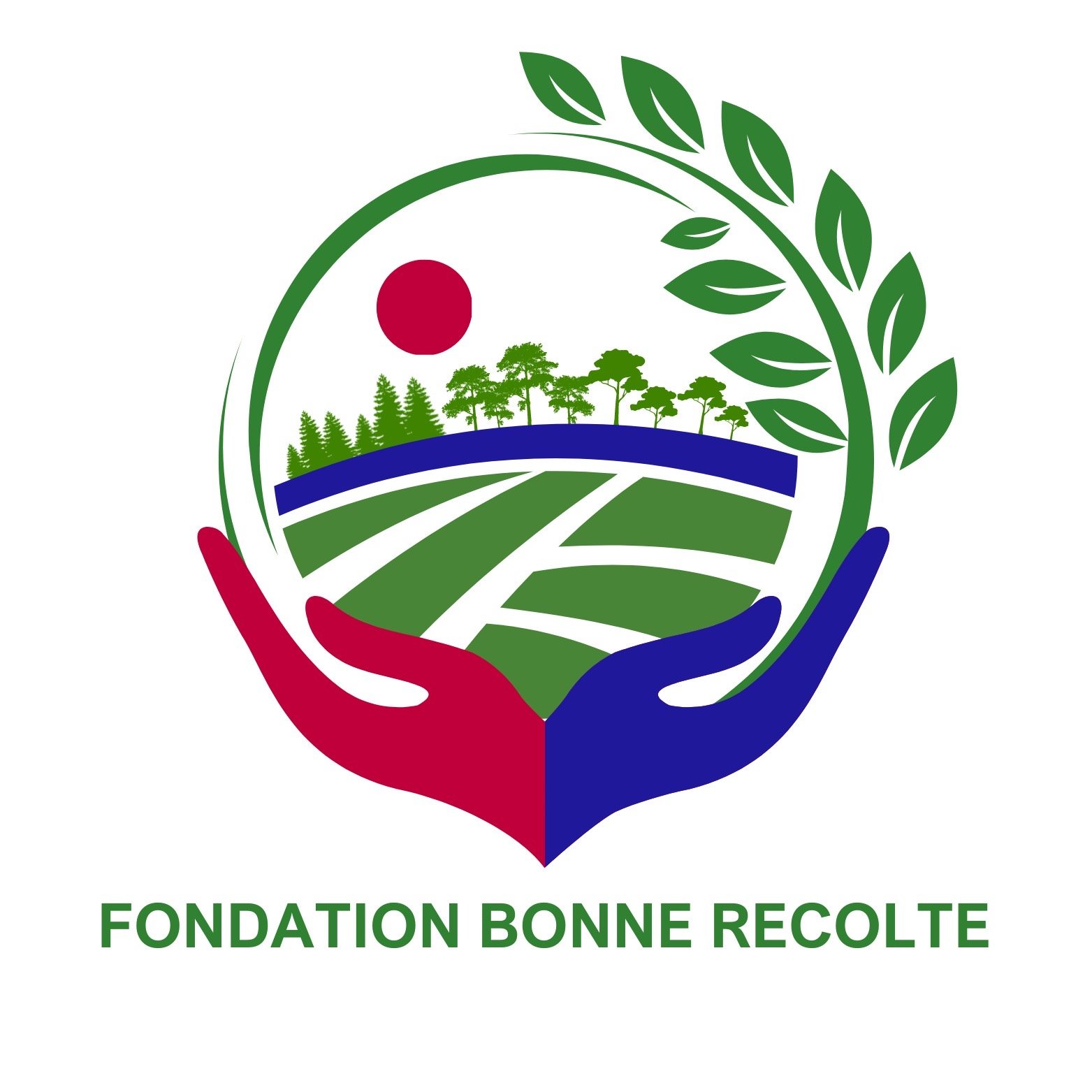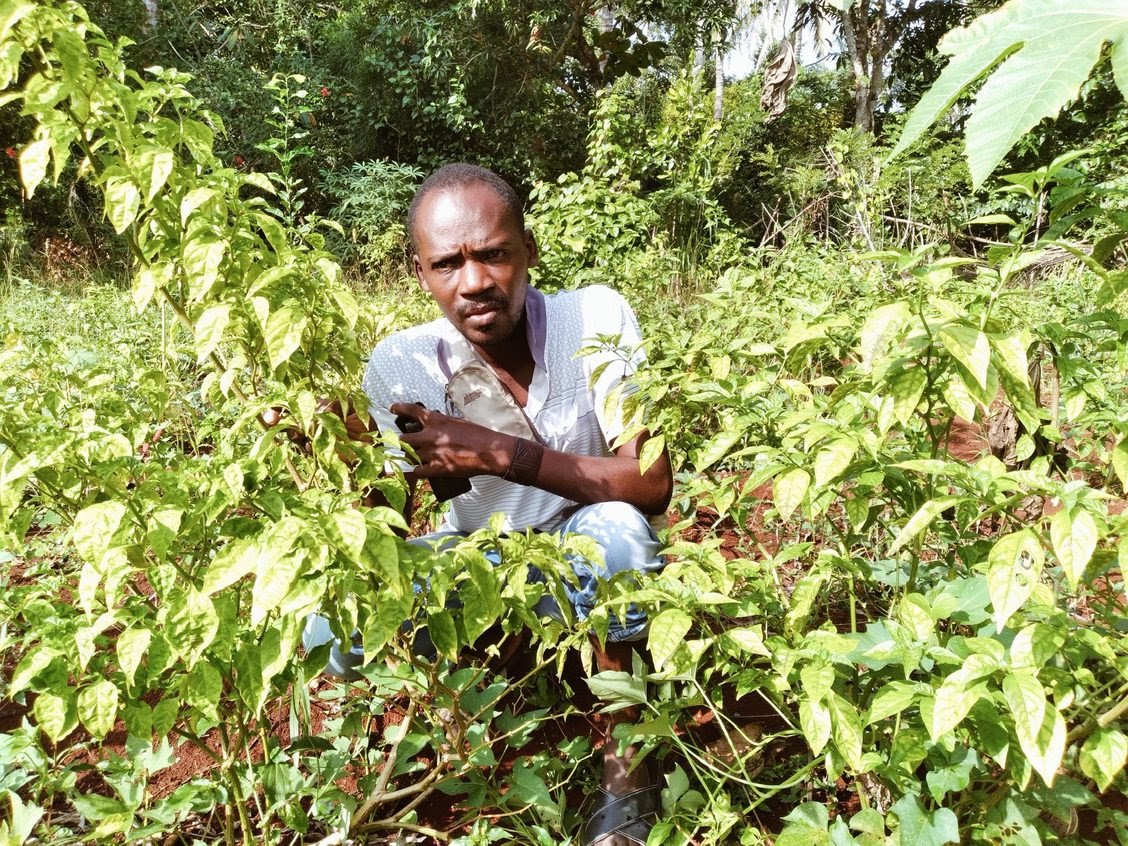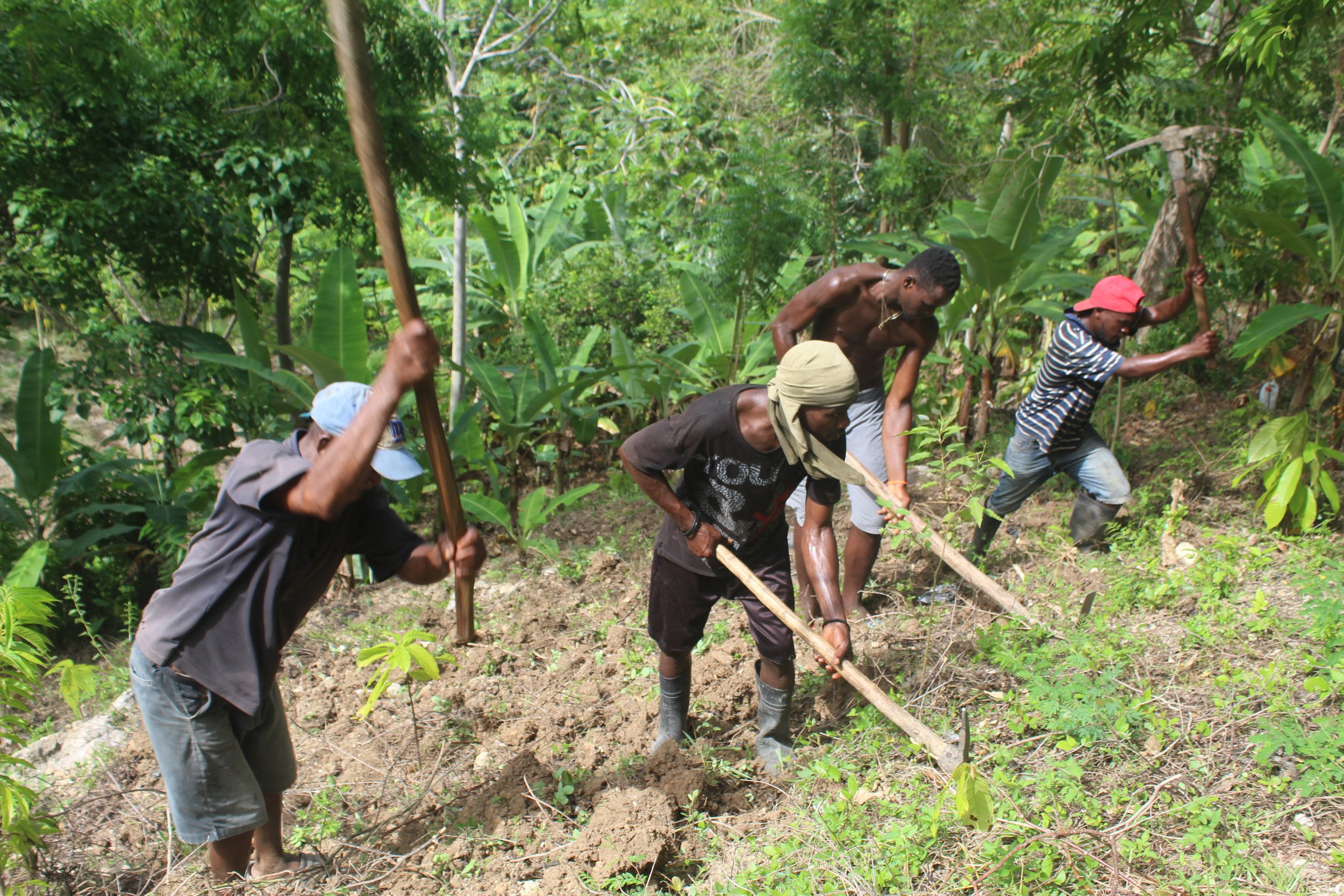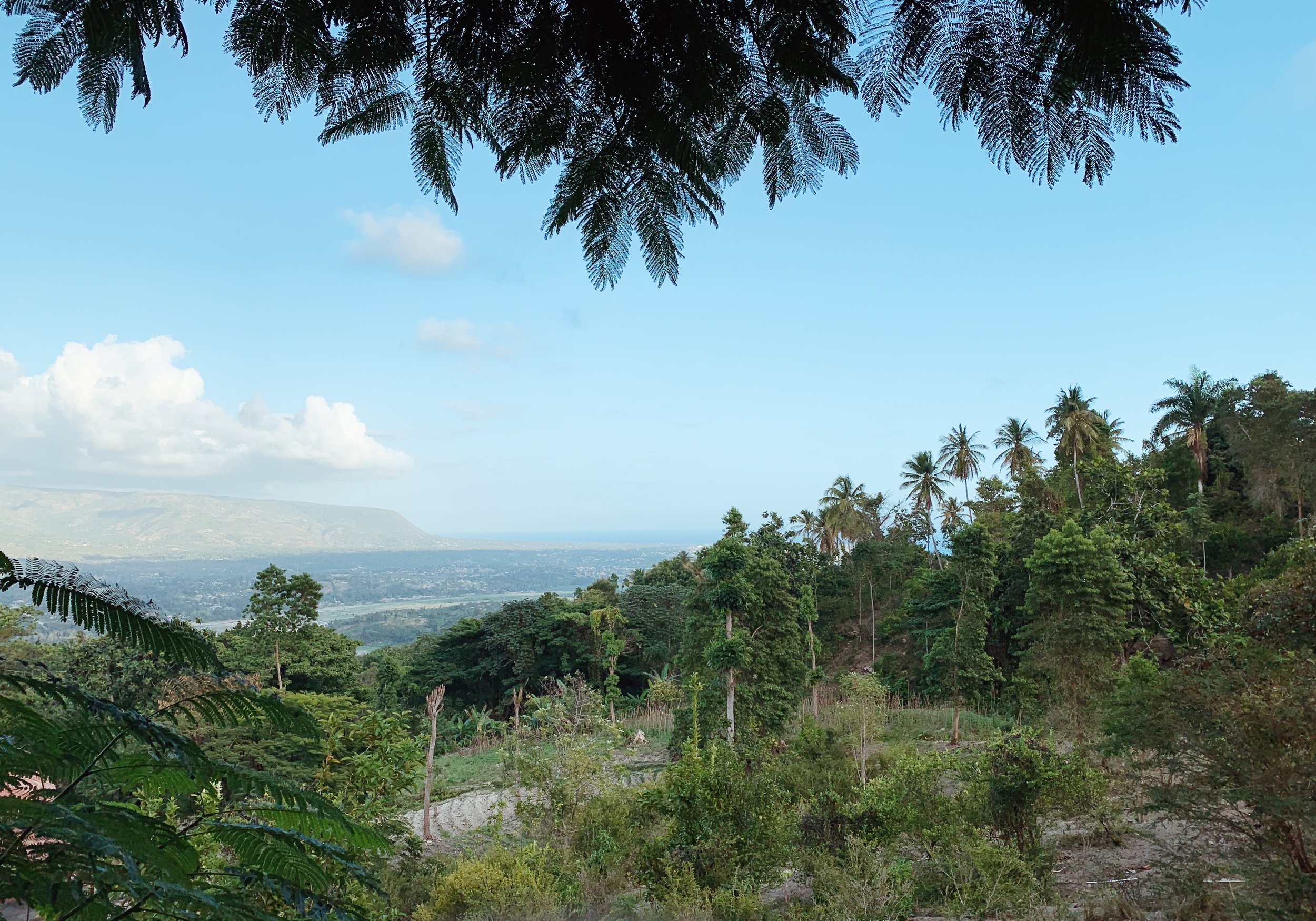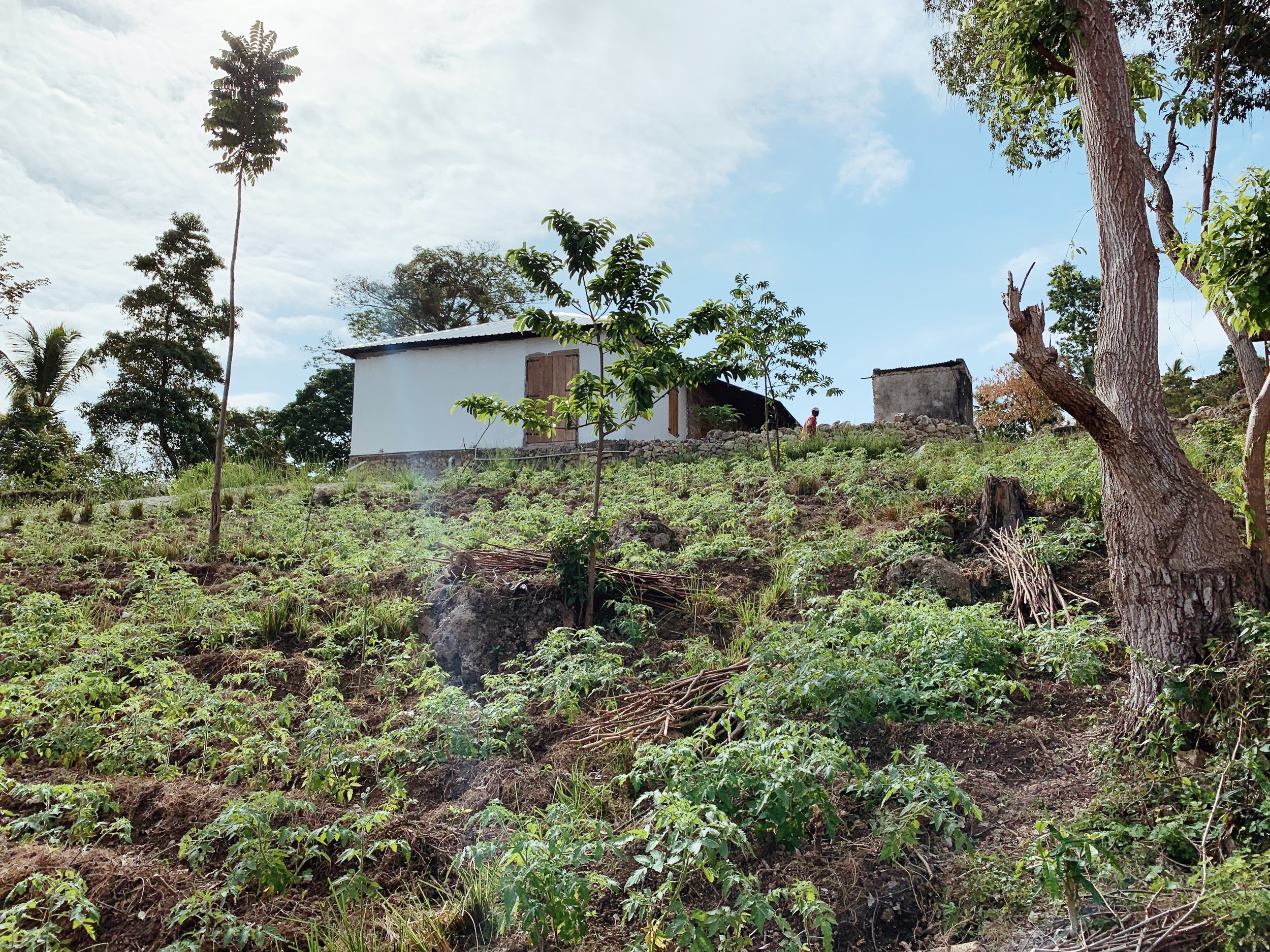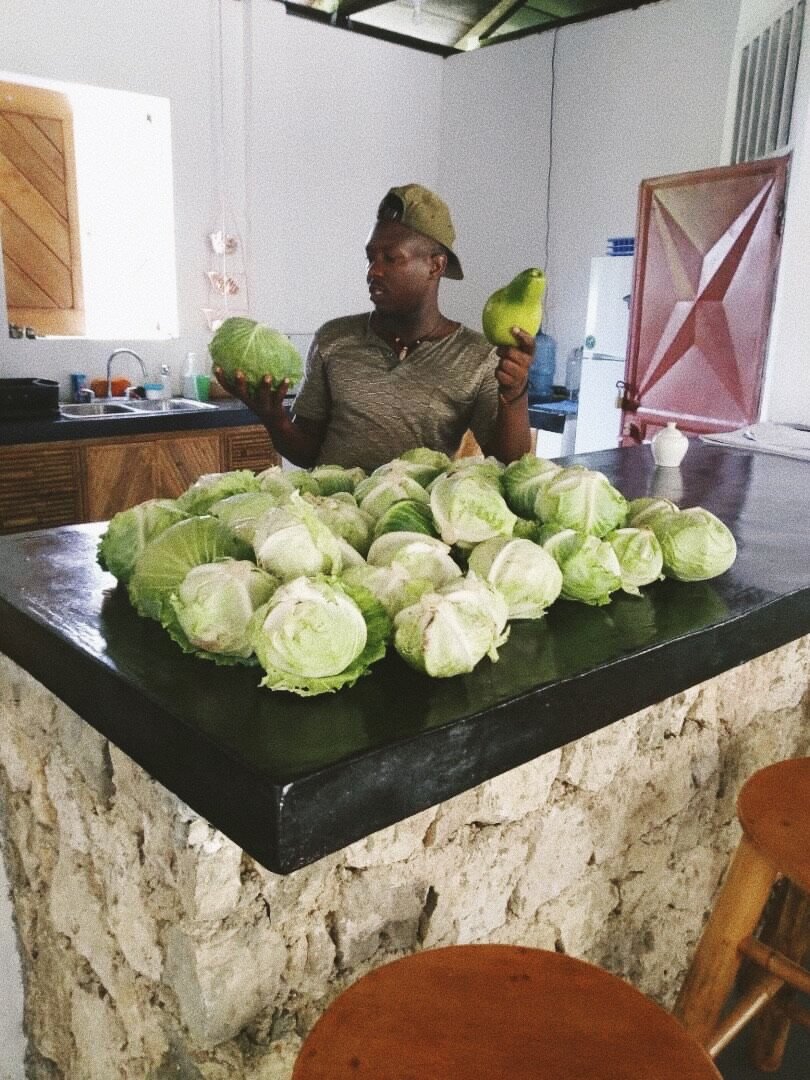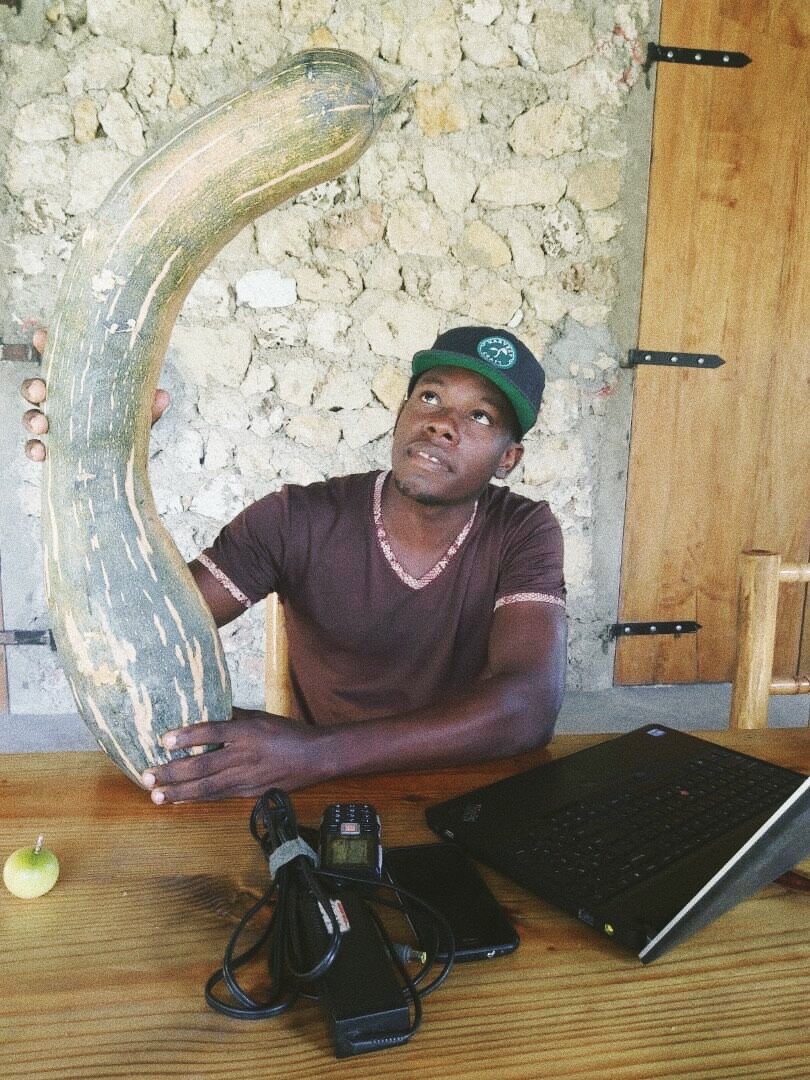In partnership with Fondation Bonne Recolte
Since the launch of the HCA in 2018, we noticed a need for a Haitian-led non-profit entity to invest and lead the long-term work. We decided to partner with Fondation Bonne Recolte (FBR) and commit to a truly community-led approach. FBR oversees now all day-to-day operations of the HCA and future development of programming for wider impact in Haiti.
FBR is a Haiti-based non-profit focused on collaboration with rural communities to help them improve the design of their farms, diversify their production, connect them to market opportunities, and promote healthy ecosystems.
The Haiti Center for Agroecology (HCA) is a Research and Education Center based near Jacmel, Haiti that seeks to engage in agricultural research, training and education for the empowerment of local farmers and university students, both locally and abroad.
Over 400+ farmers are benefitting from, and are enrolled in our HCA programs, which include monthly trainings, seedling distributions and access to our research and demonstration plots.
Farmer Testimonials
“This (HCA) program has allowed me to have income at all times. It’s allowed me to cover my small expenses, grow produce to sell, ensure income, and also bring home vegetables.
For this reason, I thank the HCA and this program as well as the financial supporters who’ve made this possible.”
- Farmer Notoise, Regular HCA Participant
“I thank the leaders of the (HCA) program and I thank the farm technicians at the HCA farm for the technical training that they give me. I’m very satisfied with the seedlings they give me monthly. Thanks to the success of my harvest I was able to buy food for my family and buy two goats.”
- Farmer Guerrier, Regular HCA Participant
“Thanks to the training sessions of the HCA program! It has taught me how to grow vegetables, prepare organic fertilizers, prepare insecticides, graft and many other things. More children now eat the eggplant and chili pepper from our garden and are stronger and happier. Before we did not produce chili and eggplant due to lack of water. Now we know that we can produce it and protect it in simple ways. Thank you!”
- Farmer Isidor, Regular HCA Participant

WHAT IS Food Sovereignty?
In a world with an ever-growing population and the issue of food security
becoming an increasingly serious concern, the solution of industrial agriculture must be reconsidered.
The traditional approach of developed countries producing in mass and dumping excess into the global market has forced a dependence of developed nations on international aid. This negatively impacts the local economies of producers in those nations, who rely on their produce to survive.
Haiti in particular has been highly impacted by these types of policies and hand-outs
The solution lies in boosting local production where these subsistence farmers can improve their yields, their environment, and their post-harvest practices to extend their profit margins, all while having the ability to feed their communities.
This combination of food security and self-reliance is known as Food Sovereignty.
Why Haiti?
After many years of Harvest Craft’s work around the world, we determined that our greatest ability to influence change is embedded in where we are able to facilitate the deepest relationship; this is in Haiti. Primarily, because Co-Founder Craig Erickson lives there, but also because we have been operating in this country the longest.
We aim to be an organization that has a true impact in one place that is rooted in deep relationships, rather than leaving surface level impacts around the world
Why the Center?
The United States uses a model of research and extension centers that are set to receive governmental and agricultural industry finances. Those funds are invested into research conducted by university teams, which determine solutions that can then be implemented into local agricultural industries. These solutions promote increased yields, agro-ecosystem health, and profitability.
In a country where government support is minimal and a scattered agricultural industry cannot support this kind of work, Harvest Craft seeks to step into this void and develop a Center (modeled based off the United States REC system) that can stimulate economic development, while promoting environmental stewardship.
Why Agroecology?
Agroecology treats the agricultural system like an eco-system; it is mindful of the web of relationships held between all organisms in nature, and goes beyond organic and sustainable constructs. Agroecology is more than a science or farming technique. It is a social movement that focuses on the welfare of farmers in developing nations, because these farmers are a part of their agro-ecosystem and food production system. If they can maintain a productive and healthy environment, then they and their consumers can maintain a healthy and flourishing lifestyle.
Our Goal
The intention of the HCA is to determine local Haitian farmers’ needs and allocate knowledge and resources to them via research, trainings, and seminars. Resulting in contextualized solutions that can generate food and income, and stimulate the local agrarian economy.
The Site
The HCA is a campus situated on about 30 acres on the hillside surrounding Jacmel. The property offers 360-degree views of the beautiful countryside, proximate ocean, and numerous trees and bird species. The HCA is fully off the-grid with a local spring and solar electric system.
The main building on campus functions as an office, dorm, and meeting area for groups and classes. All of the furniture inside has been sustainably sourced from bamboo and crafted by local artisans. The house is also equipped with a grey-water system that drains into a banana patch, as well as looks over the Eden Projects tree nursery.

HCA Programs Offered on Site
1. Local Farmer Co-Ops
Each month we host a farmer co-op meeting that is attended by more than 100 local farmers. At these monthly meetings, we have three agronomists that train, educate, and ask for concerns and problems the farmers are seeing in their fields.
2. International Research
The HCA hosts agricultural scientists, researchers, university students and professors to conduct field trials on site for Haiti’s local farmers, as well as host seminars for the local farmer co-op.
3. Tree & Vegetable Nursery
We have two nurseries on site (in partnership with Eden Reforestation Projects) to propagate and equip farmers with fruit trees and mixed vegetable crops so that they can receive these and integrate them into their own fields
4. Local Food Processing
The HCA will house a solar dehydrator where farmers are encouraged to bring their raw fruit to dehydrate for food preservation and to add value to their products in the market. This will increase food sovereignty, as well as maintain a product throughout the off- season where they can command a higher price for their product when the market is not saturated.
5. Ongoing Demo Plots
We have a host of demonstration plots showcasing proper soil stabilization and terracing techniques, greenhouse and nursery propagation, mixed vegetable intercropping systems, and animal integration plots.
6. International Collaboration
University students from the United States and Haiti are invited to conduct research on site, as well as to come and use the HCA as a venue for their university’s associated professors to host a class on the property. These students are encouraged to engage with some of the work that is occurring on site.
Topics covered include: Environmental Restoration, Tropical Agriculture, Agroecology, Reforestation, Tree Physiology, Holistic Development.


